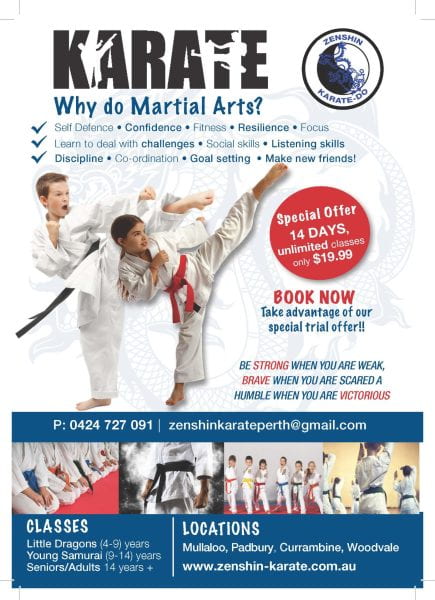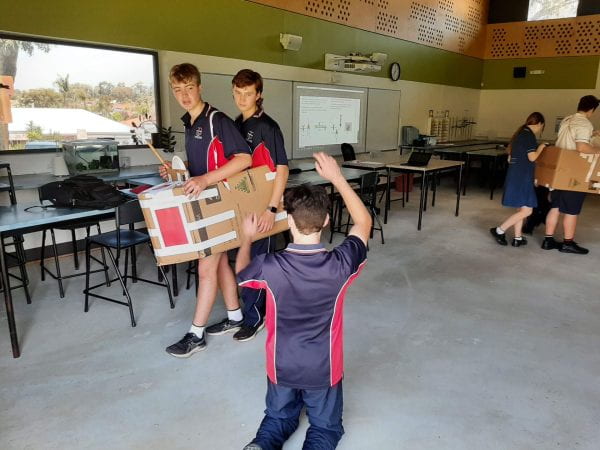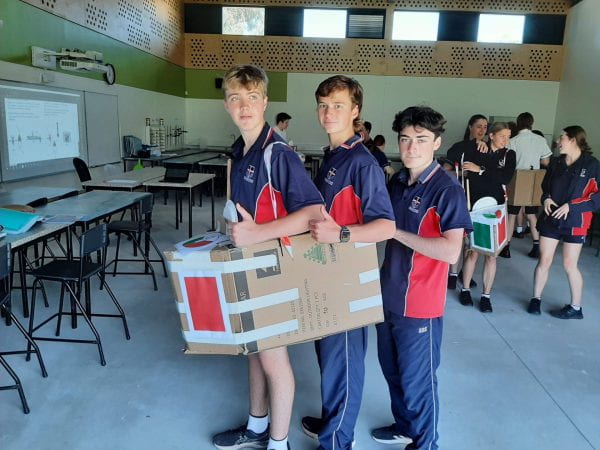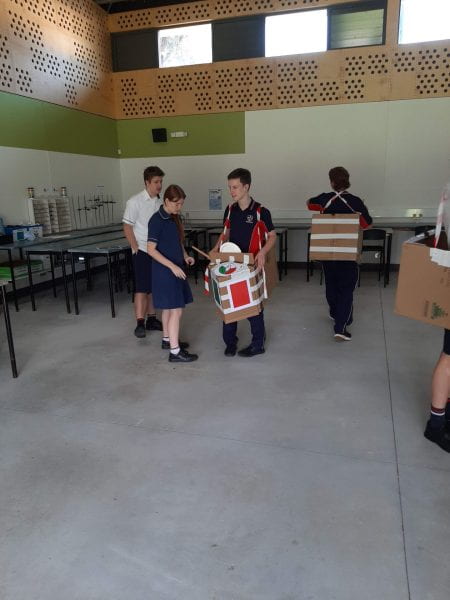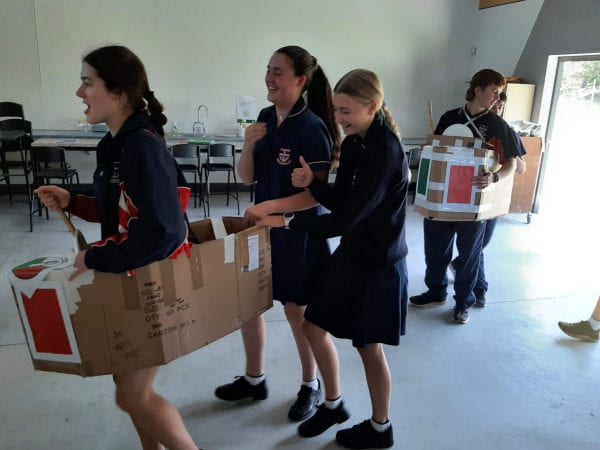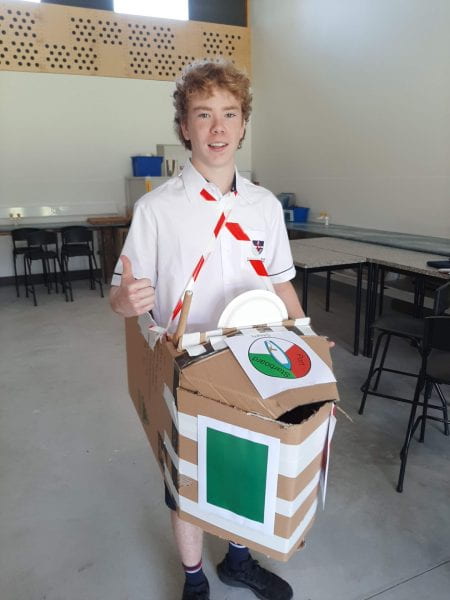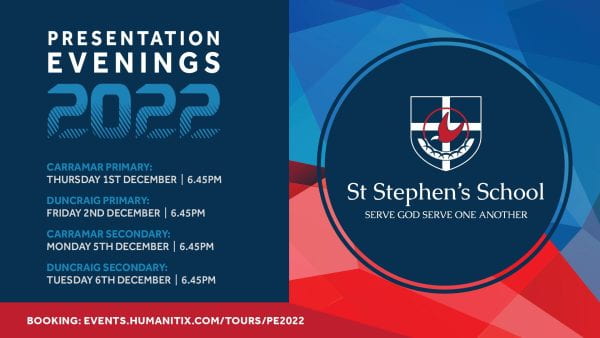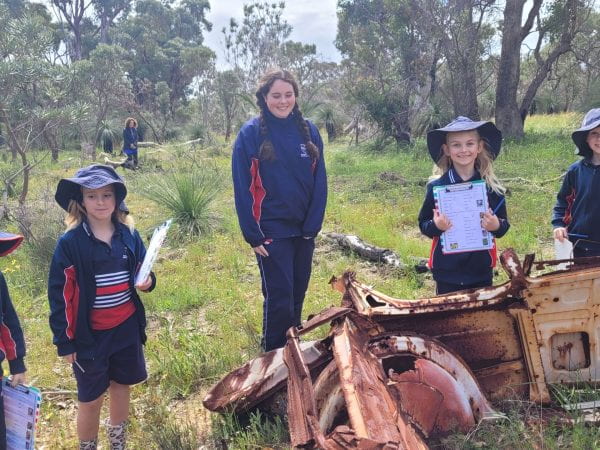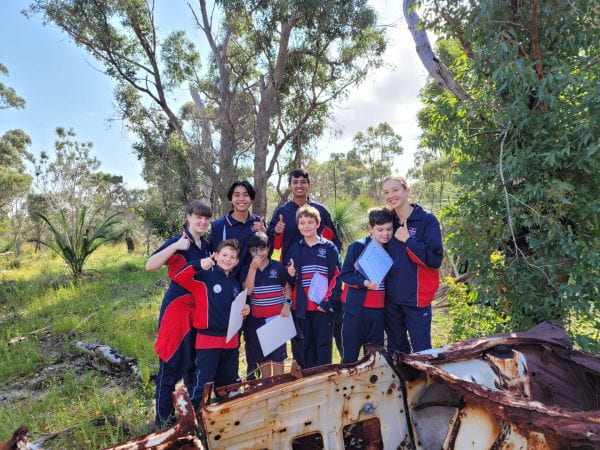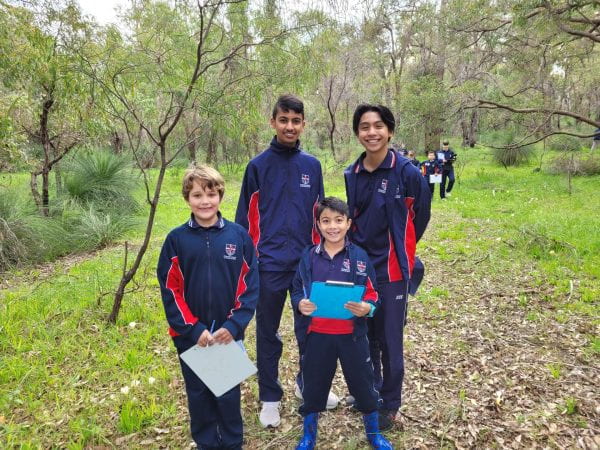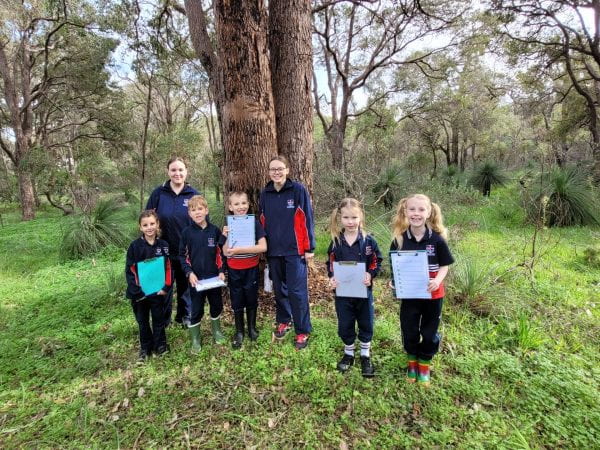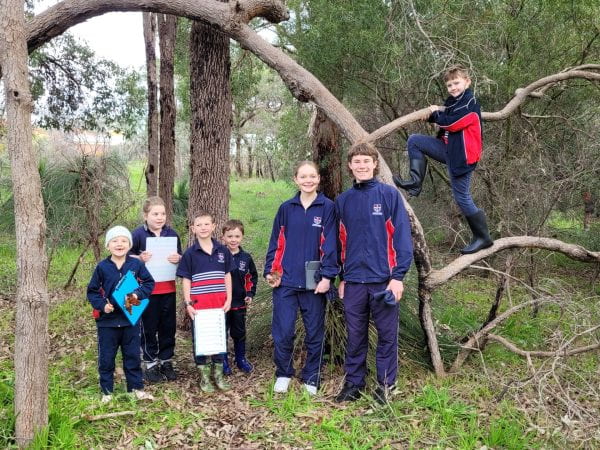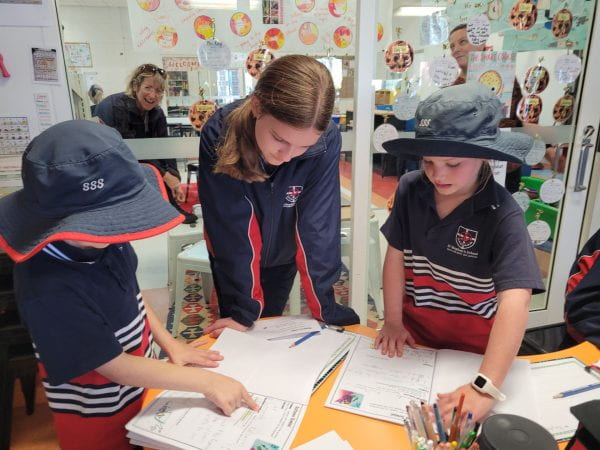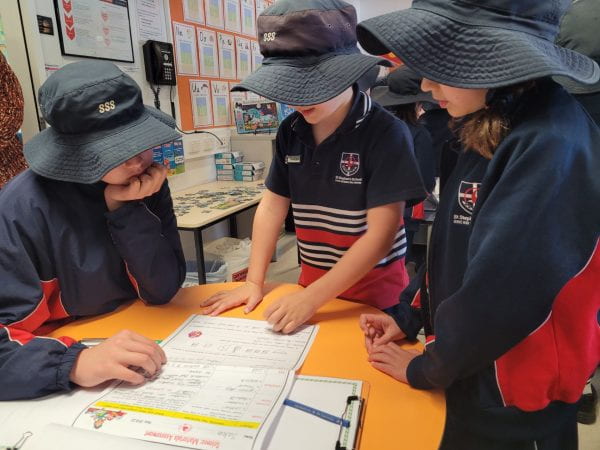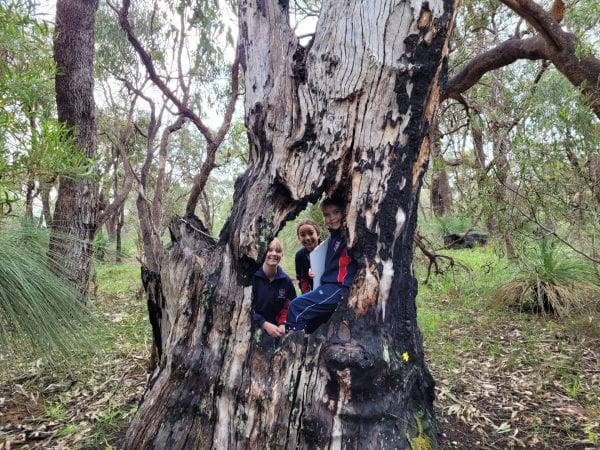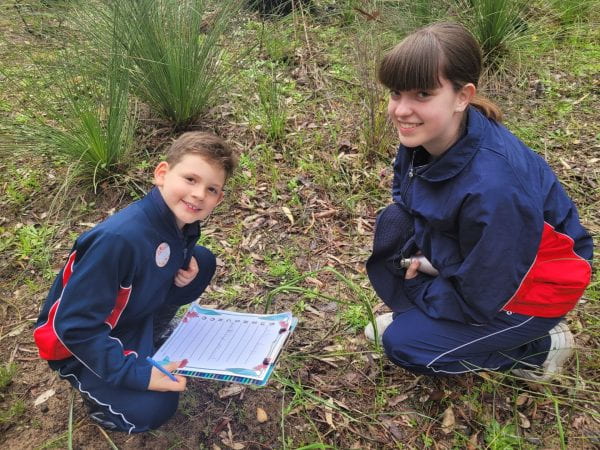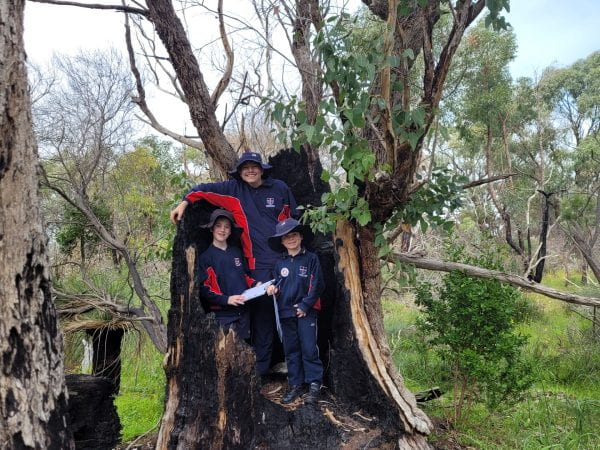Last week we had the pleasure of hosting our Spring Tour for prospective families. It is an opportunity for parents to make one of the hardest decisions on choosing a school for their children. The privilege of education which aligns with families’ values, faith and holistic opportunities is one that the St Stephen’s School community is spoken highly of in Perth. It is always a delight to be able to showcase our beautiful grounds and facilities however the opportunity to see the students in classes with their teachers and engaging with each other provides the true St Stephen’s School vibe. Our student ambassador Victoria spoke about her experiences and encapsulating all that we are as a School. With her permission I have shared her speech.
My name is Victoria Hill I’m in Year 9. A little bit of background on me is that my mum attended this school as well, she was in the very first class of Year 8 and was also in the first graduating class! I’ve been attending St Stephen’s since kindy and I’m here on the K-12 Journey!
I have really enjoyed my time here because I believe that St Stephen’s has a quality that is quite unique. When you look at school as a general kind of blanket term it’s a place where kids go, to learn. But St Stephen’s is so much for than that. It’s a community.
When I’m at school I feel uplifted by the teachers around me. They are always supportive of what you can do and what you can’t do yet. The staff go out of their way to look out for their students. They keep your best interest at heart and have endless opportunities for students. We have a wide student culture. If I stood up here and told you about all the extracurriculars we offer, we would be here for a very long time.
St Stephen’s fosters a community that allows for lifelong connections. When my mum attended this school, she graduated with such strong bonds with friends that she still hangs out with to this day. Coming up she’s attending her 30-year reunion. Her classmates from all those years ago, meeting up again to share and love in the community that St Stephen’s has placed in their hearts.
And that’s what’s so amazing about St Stephen’s, because it’s one thing to sit in a classroom and take notes. But without being in a community that you love, that supports you, that looks out for you. That builds you up to grow. It’s really challenging to succeed. By making lifelong friendships, participating in the opportunity’s that St Stephen’s makes available to you, it really paves the way for a positive schooling experience.
I’ve been fortunate at St Stephen’s to have been able to take part in a lot of opportunities.
The first was back in 2019 when I was in Year 6. Our school has a mission, serve God serve one another. And I was really interested in taking part in one of our schools Service Tours to the Kimberly region. 16 students from both campuses were selected to take part and I’m so grateful that I was one of them. We travelled around in an off road bus for 10 days, we flew in to Broome and flew home from Kununurra. But along the way not only did I form strong friendships and bonds with the rest of the tour group, but my eyes were opened going into community’s and schools that are so different from my own. This tour is one of a handful that the school offers. Obviously with Covid it’s been a bit challenging to go on any other tours, but should the opportunity arise again I’d love to do another service tour later in my school life.
I mentioned earlier about the long list of extra curriculars that are on offer at St Stephen’s, so I thought I might tell you about a few that I engage in. My biggest one is debating. Ever since Year 6 I have realised that it’s definitely my thing. We have a rookie debating competition. Which is where all the juniors and first timers just get in there and have a go. That was where I had my first big success at St Stephen’s. My team debated really well for 12-year old’s, and I got the award for best debater, which I was really proud of. Fast forwarding to high school I’ve been participating in the Western Australian Debating League every year. Which I have loved competing against other schools. My biggest achievement however happened last Friday. My teammate and I had the opportunity provided to us by our head of English, Mr Jakeway, to be guinea pigs in a program they were thinking of advertising next year. So, all competitive sides of us put aside. My friend Jacob and I tried British Parliamentary Debating. Little did we know that after the qualifying rounds we had progressed into the semi-finals on our first ever season of the competition. Last Friday after debating the topic “this house believes that we should encourage all kids to attend university regardless of intellectual abilities” St Stephen’s School walked out with being the official winners for the 2022 grand finals.
Other extra curriculars that I love at St Stephen’s is our drama program. Every two years we either do a production or musical and every time that opportunity comes up, I always give it a go. So far, I have acted in roles in the Lion King, Wizard of Oz and Lion the witch and the Wardrobe. And I hope that there are many more to come.
And the final extracurricular that I participate in is service learning. I enjoy doing the food runs for the salvation army or doing volunteer work at retirement homes and disability centres. At St Stephen’s School the community isn’t contained just to the school grounds. It’s also in our local settings as well. Serve God serve One another isn’t just a school moto, it’s something to be proud of. Attending a school, that fosters good moral principle isn’t a chore, it’s something that I love doing in the local community. Not something that I just do at school.
I’m not going to stand up here and say that at St Stephen’s it’s such a magical place because no students ever have any worries, and everything is perfect. Teenagers get stressed, school can get tricky and overwhelming. But we have support networks. Every day after recess we have homeroom a 25-minute group where there are classes of all year groups. There’s no work. You just sit, hang out, take a break. This is the opportunity whereby if your being challenged, being overwhelmed, or need support. There are trusted teachers in your life every single day. We also have House Deans. I’m in Timae so my Dean is Mr Timms. You can talk to the Deans about anything. At 100% of the time any issues get resolved and addressed.
We also have something unique during school time programs at St Stephen’s. In Year 7 and 8 we have Forum, because we were all just kids adjusting to high school life and pressures, it was two classes a fortnight that taught us study skills, time management and a school life balance, all skills that we all need. In Year9 we have Rite Journey, a program with four lessons a fortnight which covers a lot of topics that tackle moving into the adult world. They are gender divided classes where we cover important topics like equality, boundaries, morals, and beliefs. In short, it’s a judgement free zone where we have discussions about issues impacting our generation and gender. Its advice for moving forward into senior school and adulthood. Leaving behind a positive legacy and setting us up for a successful and fulfilling adult hood.
So, for all of you students who are considering starting your journey at St Stephen’s. I’ve got some advice for you.
1- Community is important, engage and enjoy in the experience
2- Its ok to be vulnerable, the staff and students are all here to support each other and there are so many networks that are available for whatever needs or concerns that you may have.
3- Get the most out of your opportunity’s, I’m sure you’ve heard this before, but give it a go. There’s no harm in trying.
4- And finally, you don’t have to be an expectational or extraordinarily gifted person to be loved and supported at St Stephen’s.
Thanks so much for your time and I hope hearing from me was valuable for you!
Rosemarie Dunn

Head of Campus – Duncraig



